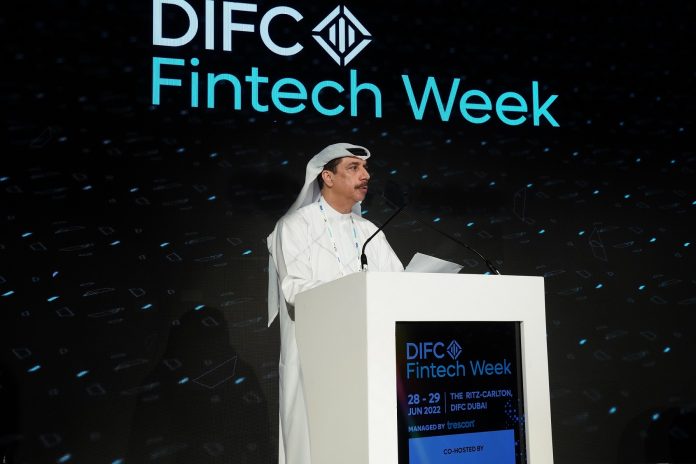Dubai International Financial Centre (DIFC), the leading global financial centre in the Middle East, Africa and South Asia (MEASA) region, today launched the region’s first Open Finance Lab, heralding a new era of finance in the region.
The Open Finance Lab initiative is a six-month programme that commenced on 28 June 2022. A total of 4 banks and a FinTech company are scheduled to participate in the programme, including Commercial Bank of Dubai, First Abu Dhabi Bank, Mashreq Bank, National Bank of Ras Al-Khaimah and Zand. Use cases will be explored and developed from July to November 2022, and the lab will conclude with a demonstration of the impact achieved to government officials and bank executives.
The launch of the region’s first Open Finance Lab follows the recent signing of a Memorandum of Understanding (MoU) between the Central Bank of the UAE (CBUAE) and DIFC Authority to promote the development and growth of the UAE financial technology sector. The initiative supports DIFC’s ongoing efforts to realise the objectives of its 2030 strategy by unlocking strategic opportunities for the UAE and reinforcing DIFC’s leading position as a global financial services hub.
With the overarching vision of the UAE to become a global benchmark in Open Finance, the lab will work -in collaboration -with banks, FinTech, regulators and the industry. It has the potential to unlock the next wave of growth for the sector and increase consumer protection, financial inclusion, social benefits, and economic opportunities.
In addition, the lab will run business and technical deep-dive workshops, facilitate industry and regulatory forums on important issues. These include API standards and consumer consent management, and educational sessions to promote a greater understanding of how the Open Finance data will create more opportunities through the application of emerging technologies; resulting in new data-driven innovations and business models that will enhance the future of the financial system. The insights and learnings from the use cases and forums will contribute to the development of the sector and regulations.
Additionally, the DIFC Innovation Hub will host an Open Finance Week in September 2022, creating further opportunities for the industry to engage and share their expertise and respective learnings with each other.
Commenting on the initiative, Arif Amiri, CEO of DIFC Authority, said: “Launching the region’s first Open Finance Lab reaffirms DIFC’s commitment to driving the Future of Finance and provides a framework to move the country towards an Open Finance economy. The evolution of data-driven business models that make finance more inclusive, accessible, and competitive can generate significant new opportunities and open the door for a wave of financial innovation in our region and across the globe.”
Powered by Tarabut Gateway, the first UAE-based platform fully authorised by the Dubai Financial Services Authority (DFSA) for Open Finance activities, the initiative will serve as a testbed to showcase the positive impact of Open Finance on businesses, customers, and the economy, and can help inform policymaking and infrastructure with empirical evidence and industry feedback. Participants will receive complimentary guidance from trusted technical providers to support the implementation of use cases.
Abdulla Almoayed, CEO of Tarabut Gateway said: “We are honoured to have been selected by DIFC as the platform partner for the region’s first Open Finance Lab. The support we have received from UAE financial regulators is testament to the UAE’s drive towards building the future of finance and establishing its presence as a leading global FinTech Hub. We are committed to contributing to the country’s vision and look forward to collaborating across the ecosystem to further drive the Open Finance movement forward.”
Open Finance provides a platform for financial services providers, with the consent of consumers, to come together and provide data using Application Programming Interfaces (APIs) for pooling and sharing data as part of a collaborative ecosystem. It is based on the principle that financial data created and supplied by an individual on financial services, such as mortgages, savings, insurance, or consumer credit, upon their consent can be shared with trusted third parties to allow tailored products, services, and customer experiences as well as unlock operational efficiencies and enhanced security.











